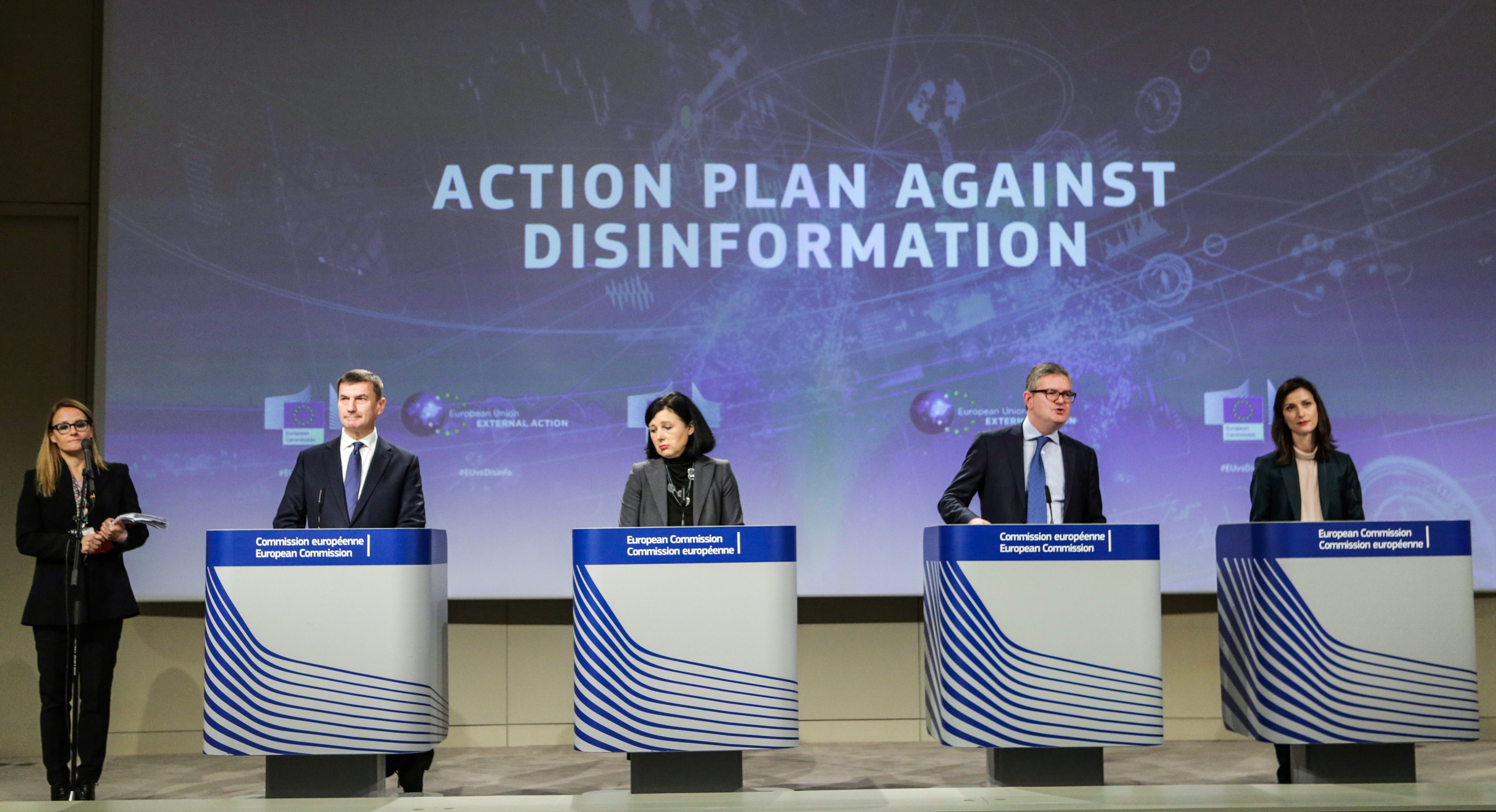EU urges internet firms to intensify fake news fight
European Commission officials are campaigning against “disinformation” which they see as a threat in election campaigns (Aris Oikonomou)
Brussels (AFP) – The European Union on Tuesday urged US internet giants and advertising firms to intensify the fight against disinformation campaigns before EU elections in May, or risk regulation.
The European Commission said Google, Facebook, Twitter, Mozilla and advertising groups have made “some progress” toward meeting their pledges to fight fake news by removing bogus accounts and curbing suspect sites.
However, “the pace of progress needs to be faster,” the EU’s security commissioner, Julian King, said just four months before elections for a new European Parliament.
“We cannot afford to wake up the day after the elections and find we could and should have done more,” King told a press conference in Brussels.
The European Commission, the 28-nation union’s executive arm, gave its first report on what the internet players have done to meet pledges made late last year in a “code of practice” to fight disinformation.
The commission said “additional action is needed to ensure full transparency of political ads” by the start of the election campaign in EU member countries.
It also urged platforms to give European researchers access to their data, something King said leading researchers claim Facebook has failed to do.
The commission called on the platforms to ensure cooperation with member countries through the Rapid Alert System.
Planned for March, the system will allow members to share data and analysis on propaganda campaigns and promote what the bloc says will be objective communications about its values and policies.
Mariya Gabriel, the commissioner for digital economy and society, said internet players must intensify their monitoring and reporting while increasing cooperation with fact checkers and researchers.
“The time for fine words is over,” Gabriel told the press conference.
Facebook came under the biggest spotlight in the commission report despite unveiling new tools on Monday to counter online political meddling.
The US tech giant’s vice president, former British deputy prime minister Nick Clegg, said in Brussels that the methods would become available in late March and help “make political advertising on Facebook more transparent”.
– ‘Water pistols’ –
King welcomed the Facebook announcement but said it “would have been better” had the Silicon Valley firm submitted the details for the progress report.
While praising Facebook for removing new fake accounts, he said Facebook must still take down up to 90 million old accounts that the firm estimates still exist.
He said Facebook must also extend cooperation with fact-checkers from seven member countries to the entire bloc.
The social network has in the past been accused of being used as a platform to spread divisive or misleading information, most notably during the 2016 election that put US President Donald Trump in the White House.
Facebook ads have also been at the centre of the FBI investigation over Russia’s alleged meddling in that election and suspicions are rife that the Kremlin has interfered in votes across Europe.
Moscow has repeatedly denied allegations of hacking and meddling in foreign elections through disinformation over recent years.
The commission said Google was helping to make political advertising more transparent but said some tools to help users were limited to only a few member countries.
It said trade associations like the World Federation of Advertisers and Interactive Advertising Bureau Europe have raised awareness about the code of practice but noted the absence of corporate signatories.
The commission renewed warnings it could take “regulatory” action if the online platforms fail to honour their pledges, which will now be reviewed in monthly reports.
Activist group Avaaz said Facebook and others see the code of practice as a “PR stunt” and will not fight the lies and hate it says are destroying European democracies.
“Europe is on fire, and social media platforms bring water pistols to fight the flames,” Avaaz campaign director Christoph Schott said. “It’s now on the EU Commission to do what they’ve threatened for a year: Legislate.”
Analysts warn that populist parties opposed to founding EU democratic values could do well in the May 23-26 elections by playing on anti-immigrant sentiment.
Such parties have already done well in national elections, including coming to power in Italy.
Disclaimer: This story is published from a syndicated feed. Siliconeer does not assume any liability for the above story. Validity of the above story is for 7 Days from original date of publishing. Content copyright AFP.


